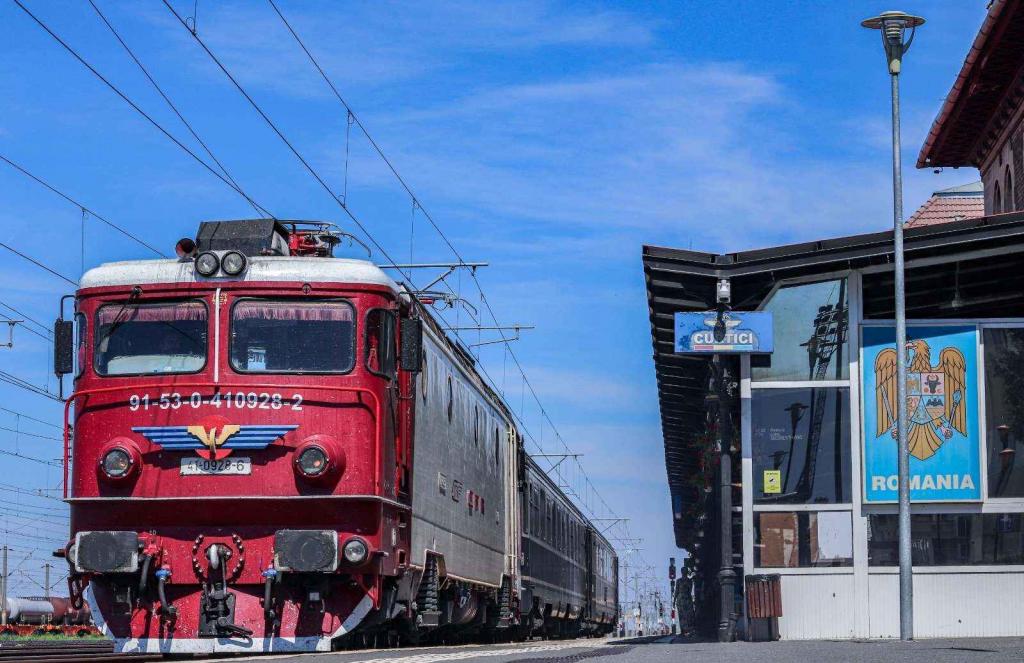Thessaloniki gets ready for its metro launch in November
The underground rapid transit lines have been under construction for almost two decades due to various project delays
 TheMayor.EU logo
TheMayor.EU logo 
Depspite looking dated, Romanian Sun Trains have all been renovated on the interior, Source: Mladin Vlaicu via CFR Călători on Facebook
The initiative is meant to boost domestic tourism while offering travellers a cheaper way to reach the seaside in the wake of surging gas prices
This summer, Romanians will enjoy convenient train routes from major cities directly to the country’s resorts on the Black Sea and the Danube delta. From June until September, the aptly named ‘Sun Trains’ (Trenurile Soarelui) equipped with power outlets, air conditioning and lounge cars will roll across the Romanian countryside in what local authorities deem ‘some of the fastest travel options available’.
This policy will help to foster more domestic tourism, while also offering Romanians and visitors a way to get to their holiday destinations cheaply and more sustainably thanks to saving on fossil fuels. To a large extent, the initiative represents a ‘build it and they will come’ attitude towards rail transport, reminiscent of the German summer hit of a 9-euro ticket for public transport.
The train routes will launch from major Romanian cities like Iasi, Timișoara, Oradea, Cluj-Napoca, Brasov, Suceava and more. They will provide daily direct connections from the most far-flung parts of the country to Bucharest, where the trains will be redirected towards either Constanta or Mangalia, the two major cities on the Romanian Black Sea coast.
Also, there will be daily round trips to the city of Tulcea, located deep in the Danube delta, going through Mangalia, Constanta and Bucharest.
Apart from sustainability and convenience, Romania’s trains also offer a decent speed. According to the CFR Călători, Romania’s train operator, a trip from the central station in Bucharest to the seaside in Constanta would only take 2 hours and 20 minutes, which is comparable to the time it would take with a car and significantly less than taking a bus.
In addition, train fares will be competitive, at just around 12 euros for a ticket from Bucharest to Constanta. Furthermore, school students are allowed to ride for free, while those in university get a 50% discount if they ride in a second class car.
Longer routes like those from Baia Mare and Cluj-Napoca from North-Western Romania headed for Mangalia in the South-East will come with a lounge car and with a bar area to put passengers in a relaxed holiday mood.

The underground rapid transit lines have been under construction for almost two decades due to various project delays

Now you can get your wine in Talence by paying directly in Bitcoin

That’s because the state has to spend money on updating the railway infrastructure rather than subsidizing the cost of the popular pass

Rethinking renewable energy sources for the urban landscape

The examples, compiled by Beyond Fossil Fuels, can inform and inspire communities and entrepreneurs that still feel trepidation at the prospect of energy transition

Now you can get your wine in Talence by paying directly in Bitcoin

The 10th European Conference on Sustainable Cities and Towns (ESCT) sets the stage for stronger cooperation between the EU, national and local level to fast track Europe's transition to climate neutrality.

At least, that’s the promise made by the mayor of Paris, Anne Hidalgo

The underground rapid transit lines have been under construction for almost two decades due to various project delays

At least, that’s the promise made by the mayor of Paris, Anne Hidalgo

Hostal de Pinós is located in the geographical centre of the autonomous region

Despite its church-y name, the district has long been known as the hangout spot for the artsy crowds

Urban dwellers across the EU are having a say in making their surroundings friendlier to people and the environment.

Forests in the EU can help green the European construction industry and bolster a continent-wide push for architectural improvements.

Apply by 10 November and do your part for the transformation of European public spaces

An interview with the Mayor of a Polish city that seeks to reinvent itself

An interview with the newly elected ICLEI President and Mayor of Malmö

A conversation with the Mayor of Lisbon about the spirit and dimensions of innovation present in the Portuguese capital














